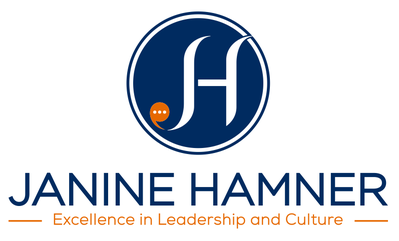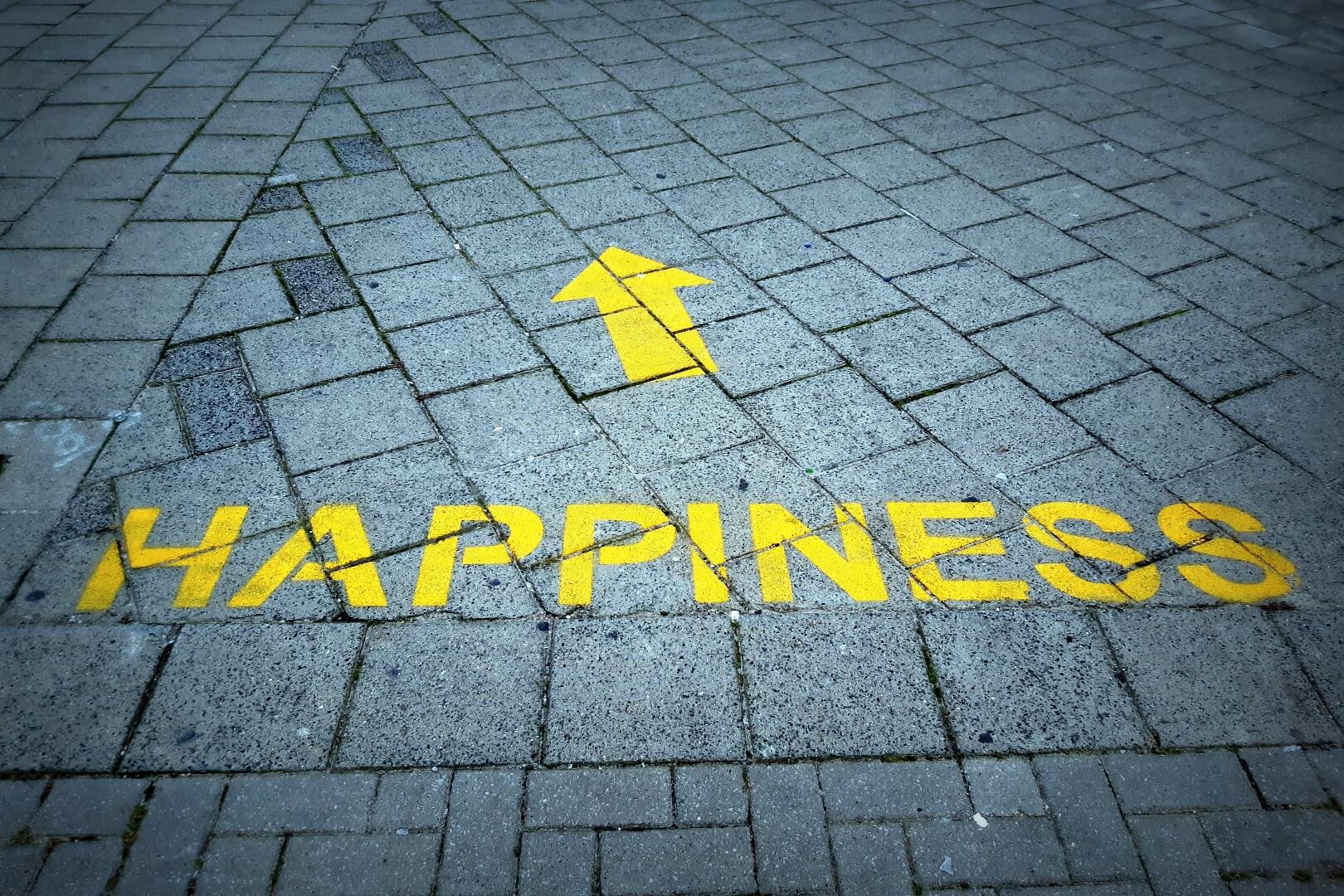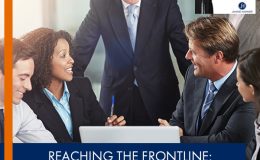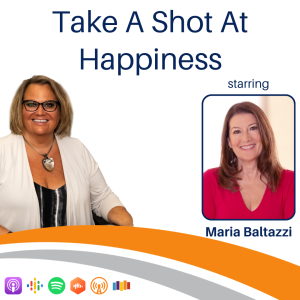
When was the last time you took a meaningful break? How do you take care of your well-being in daily life? In this episode, Janine Hamner Holman sits down with Maria Baltazzi, a happiness explorer and meditation expert, to discuss where our happiness lies, and how we can find it for ourselves.
GUESTS: Maria Baltazzi | TheSojournExperience | Facebook, LinkedIn Instagram,
HOST: Janine Hamner Holman | [email protected] | LinkedIn, Facebook, Instagram
What am I paying attention to today? I just got back from vacation, and… let’s take a minute to talk about the importance of getting a break. For me, that looks like vacation, and being on a beach. There are times when I say, “Let’s go to Europe.” That’s absolutely a vacation, but it’s not the rejuvenation break I realized I needed.
There’s something for me about being in the water, being at the ocean, and that sound of the ocean, that is rejuvenating to my soul. We’ve had some things going on. COVID-19 for one, as well as various hiccups in our world, have interfered with me being able to take that kind of break. The last time I had that kind of break was four years ago.
That is not the right interval for me. I need that kind of break once a year. Then I need other kinds of breaks, time with my husband, time with other friends. It got me thinking about how important rest is, especially at this time when everything about the world of work has shifted underneath our feet.
Many people are going through some kind of transition, either figuring out how to transition back into the office, being in a hybrid situation, or realizing their organization doesn’t work for them anymore. If they’re in a position to change that, then it’s going about the business of doing that or finding a new gig.
We’re all in this place of uncertainty and change, and it feels like time is speeding up. 2023, she is on a mission to get done. She’s got someplace to be. This year feels like it is flying by. I got to come back to work, yesterday was my first day back. I have a renewed sense of vigor, excitement, and curiosity about the work I get to do, the clients I get to work with, and the keynotes coming up in my world.
It feels like I got a B12 shot, a shot of happiness, a shot of juice, a shot of something great. Now my brain, my body, and my spirit feel reenergized.
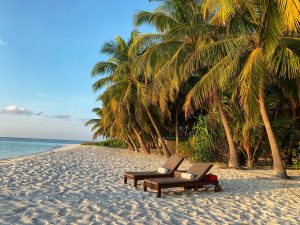
If any of you out there are thinking “It might be nice to take a break.” I want to encourage you to figure out for yourself how to make that happen. Which brings me right to our guest for today, Maria Baltazzi.
Maria is a happiness explorer who is all about helping people become happier and live more consciously. Her experience as an Emmy-winning TV producer, well-being teacher, world traveler, and travel designer specializing in transformative adventures gives her a unique lens into conscious living.
Maria helps people discover their own path to happiness in a fun and creative way that combines journaling, photography, and community. With an MFA in film and a Ph.D. in Conscious Centered Living, Maria’s adventurous and giving spirit, which includes epic treks and charity walks on all seven continents, makes her an inspiration for living your best life. She has a new book coming out, I want to make sure we bring that into the conversation today as well.
Welcome to the show, Maria.
Thank you so much for having me on your podcast. I’ve been looking forward to our conversation.
Me too. Thank you. We’ve scheduled this to be today here in the studio because I just got back from a break and if I remember correctly, you are about to take off on an adventure.
Yes, the adventure is to Morocco. I’m attending a travel conference, but it’s for people who design high-end experiences for their guests. Then I’m taking a few days afterwards to go check out a place along the coastline. Africa as a destination is my heart place for a variety of reasons, but Morocco is so different from Southern or East Africa. In Morocco, you’re stepping into a whole other world, a whole other culture. I’m looking forward to it.
I wish you a bon voyage and I’ll be excited to hear about everything after you get back.
Thank you.
I want to begin our conversation the way I often do, which is, tell me something we are not paying enough attention to, either consciously or unconsciously. What is the cost of our inattention?
I think you just described it. It is the awareness of how you are in your everyday world and how it’s costing you: not having the proper sleep, not drinking enough water, not taking time for not only emotional rest but brain repair, with how restorative and necessary sleep is. It’s not being aware of taking care of yourself and how you are in the world, your stress level, and your behavior patterns, not being aware of how that is costing you your health. It’s costing you your well-being.
You come from the entertainment industry, and there are a lot of people in that industry who use it as a badge of honor, saying, “Oh, well, I only need three hours of sleep a night.”
This idea and the way it has permeated our general culture in this badge of busyness, like the busier I am, the more important I am, the more I’m getting stuff done. I don’t know about you, but I can spend a whole lot of time being busy and not get a damn thing done. There’s a big difference between being busy and being productive.
In my world, I run my own company. I’ve got a handful of clients I work with regularly, I do keynote speaking, and I am writing a new book. I have a lot of things going on that are constantly taking my creative brainpower. I’ve realized I now need an enormous amount of sleep. I used to be fine with 7 hours. Now I need a base of 9, and if I can get 10, 11, or 12 hours of sleep a night, I’m better the next day.
When that started happening to me, I felt a lot of guilt and shame. I went to my doctor and said, “I’m sleeping so much, this feels like something’s off.” Her response was, “No, your brain is just working hard. You’re in this whole new phase of life creating your own business, and it takes so much more brain energy. You need more sleep.” But that’s completely counter-cultural to the world we live in. Can you help shine a light for us on your perspective on how we’ve gotten here, and what we can do about it?
There are a few things we can do. First, addressing the sleep issue. A few years ago Arianna Huffington wrote a tome about sleep. She is a huge sleep proponent because she basically collapsed at her desk and realized she needed to do something. In her book about sleep, and other research, studies point to adults needing an average of 7 to 9 or 10 hours of sleep a night.
This became very important to me when I was working as a producer on Survivor because you are out in the elements. For me as a producer, I always wanted to be there for as long as I could with the contestants, not only for the story but also their safety. I was always concerned, especially when bad weather was coming in, about their well-being.

I would arrive before first light with the very first crews, and I would leave the beach when they were finally falling asleep. Those were long days. They were hot days, you were being bitten, you were being rained on, you were being pounced on by the sun. You had a lot of elements that were physically altering you, and then you had such a barrage of audio coming in.
I would have one earpiece listening to the contestants and what they were saying so I could tell the camera crews what stories to follow. I would have another earpiece piece in the other ear telling me what was going on with production. Then I would generally have somebody in front of me asking me a question. That was a lot of audio coming into my head all day long, in addition to the environments.
I would be exhausted. I would work three days, that was the length of the episode. I would work for three days and then rest for three days. I would just sleep. That’s where I learned the importance of sleep for my well-being. I could do without water. I could without eating. What I could not do was not have sleep. I needed sleep to be able to function, think clearly, and be responsible. You’re responsible out there for all the humans in front of the camera as well as behind the camera.
Sleep is hugely important. Eventually, I made that as an observation for myself. I always honored sleep. Now, I rarely wake up with an alarm. I just let my body sleep for however long it needs. It tends to be 7 or 8 hours, and it makes a difference.
Your body needs to have that downtime to rejuvenate itself. While you’re in a sleep state, your brain, neurotoxins are getting trimmed away. The stuff you don’t need is getting cleared out. You need to have sleep for those microrepairs in your brain to happen. Also, water is another huge thing.
What I eventually realized in my business and what started me on my wellbeing journey, my happiness journey… I have a background. I specialize in conscious living. It emphasizes happiness studies and mindfulness. This is the “What do we do about it?” Answer, you need to approach it from a holistic, or what I call a “whole being perspective,” where you are addressing your mind, body, and soul, your mind, body, and spirit.
It is all important and interrelated. I started my journey when I recognized the demands of my career were having an adverse effect on me. I felt, “This is not sustainable for me, not emotionally. If it’s not sustainable for me emotionally, it won’t be sustainable for me physically, and I will shut down.”
When you have stress, stress can lead to a whole host of other problems. It’s so important to just stop. You were so right when you said that, beyond a big break once a year, you need more breaks.
It starts with getting enough sleep at night. I am also a huge advocate of meditation. I teach three different kinds of meditation. I teach primordial sound meditation, which is what Deepak Chopra teaches. It’s a form of transcendental meditation, mindfulness. Then I have a spiritual meditation practice. Whether you meditate or not, just to stop being a human doing, and be a human being, even for five minutes, makes a difference when you do that consistently.
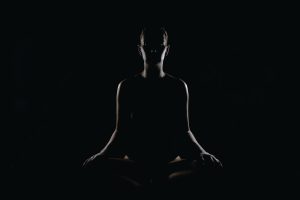
Paying attention to your thoughts and your breath can help to bring down your nervous system. You activate that parasympathetic nervous system because when you are on that constant high alert which breaks your body down, it breaks down your immune system, your creativity, and your ability to think logically. It impacts so many things… To say I haven’t had a break in four years. Those are not bragging rights.
That says you don’t know how to draw boundaries and you’re stressing your body out. When you stress your body out, you’re not as effective. When you’re not as effective, you’re not as useful to yourself or anyone else around you. You take care of yourself not only for you but for every other human you interact with.
Absolutely. I had been in a pattern of taking two real breaks a year and then COVID-19 happened. This was our first opportunity to get back to it. Many people are in that same kind of situation.
Like anything, when we stop going to the gym, when we stop paying attention to our water, when we stop eating healthy food, when we stop taking little breaks for meditation or quiet time, when we stop getting massages, when we stop doing the things that feel rejuvenating to us to fill our tanks back up, then it can take a little while to get back into the rhythm of it.
It was remarkable to me, what the opportunities and the challenges were on this vacation. Usually, I’m really good about being able to unplug, not checking my phone, not checking email, not checking texts, not even thinking about work. When the vacation is over, I’m able to plug back in.
I had a hard time turning off my brain this time. I think it’s because my brain was out of practice with disconnecting from work and being able to be present in an amazingly beautiful setting with my fabulous husband. We met a couple from North Carolina and a couple from Scotland, and the six of us have created a bond that’s going to stick with us. We’re talking about going back to the same place next year.
You don’t often make those kinds of relationships. Here I am having this amazing time. We were in Mexico and we went to Tulum, and we got blessed by a shaman. We’re just swimming in cenotes, and we had this amazing experience, and yet my mind kept wanting to plug into “What do I need to do about that thing? Oh crap, I forgot to follow up with that person. What’s going to happen about this?”
It’s one of those tricky things about meditation, thoughts are going to happen. It’s about how we can let them go. My practice of letting them go was quite rusty. I got hooked on multiple occasions, and at one point was emailing one of my team members and saying, “Hey, can you check in with this person about this thing?” That is not what I’m supposed to be doing on vacation.
I want to use that to get into your book because I know part of what your book does is help take us on a journey and start to create some of those new neural pathways we need in order to get recentered and get the rejuvenation we need. So, A, do I have that right about what your book is about? I haven’t had a chance to read it yet, and B, I’m curious what the impetus was for writing the book and how you hope people will use it.
The impetus for writing the book was I was finding the things I was learning and practicing to be so incredibly helpful and life-changing, that I wanted to share it with other people. Especially other creative people, people who are freelancers. Anybody can benefit from the book. But I’m coming from a place of being creative and a freelancer, so I was writing a book I wished I had when I was earlier in my journey.
The reason I say that is, that I wanted a book that was holistic in its approach, mind, body, and spirit, and was friendly to use. There are a lot of fantastic books out there. I have them sitting on my bookshelf. I have many good teachers. I felt most of the books focused on one aspect of well-being, or they were maybe too academic.
I wanted to do something appealing to anybody on their journey, whether you’re starting out or you wanted a fresh perspective. I wanted to offer something that wasn’t already being done. I was looking to combine journaling and the act of writing. You get a blob of thought in your head, especially when you are upset about something, but if you can write it and write through it, it helps to give clarity and structure, it gives it form.
Journaling is one aspect. Photography is another aspect, which became a meditative practice for me, in that, when I could focus on one image…I do this almost every day, I will find something that stops me, and I focus on that one thing. I don’t think about anything else for whatever amount of time it takes for me to settle on the image. I’m very thoughtful about my frame. I try to capture exactly what I want in a picture frame. It’s not about being good. It’s about being mindful.
When we think, we think in pictures. You’re using photography as a way of helping you understand and be aware of the images not only physically in front of you, but what’s going on in your head.
Then I created a community, like a Facebook community, so people who are reading the book have a place where they can go and share what they’re thinking, and what pictures they’re taking. I formatted each chapter like I would for episodic television. I took that approach, in that every chapter begins with my general thoughts on the topic. Then I have eight bullet points and eight chapters. I use the number eight intentionally because on its side it’s the sign of infinity.
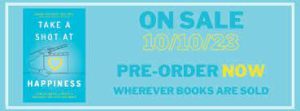
What we learn in life is ongoing and continuous. Eight was quite intentional in my book. I end with an affirmation, with a centering thought. At the end of the chapter, I have a meditation prayer people can use. Then there’s a series of reflective questions. I give assignments of things people can journal about and I offer photo assignments. All this is specific to that chapter’s lesson.
The goal is to anchor the thought in three ways. You anchor the thought by writing about it. You anchor the thought by considering the images around the idea. You anchor the thought by sharing it with others and seeing how the question you may have or the insight you may have, could be something helpful for someone else, and it makes learning more fun.
Absolutely. Your book is called Take a Shot at Happiness: How to Write, Direct & Produce the Life You Want, which I love because it’s connected to you and your journey, but it’s also, as you said, an accessible concept. It’s being released on October 10, 2023.
If people want to, they can pre-order the book right now on Amazon. If people want to join the Facebook community, how do they find that?
Go to Take a Shot at Happiness on Facebook, it’s a private group there.
Wherever you are on your journey, this book could be extremely helpful. One of the times in life it could be helpful is if you’re in some sort of transitionary phase. One of the many things that happened through COVID-19 is people had an opportunity to take a break.
Because we were in a life and death situation for many people, folks ended up reevaluating their lives, asking “What do I want and how do I want my life to go?”
I know you recently got a great review of your book from somebody who is in a period of transition. Can you talk about that a bit?
Yes, when I was a producer on Survivor, the executive from CBS, who was scheduling the network, his name is Kelly Kahl… He subsequently went on to become the president of entertainment for CBS.
He eventually left CBS, within the last year, a relatively recent time. He was kind enough to read my book. When he wrote to me about it, the endorsement he wrote was: for someone who is in a time of transition like he is, my book presented a clear roadmap for making that transition. I design travel experiences, and I also take people on their trips. I have had several solo trips, so it’s just me and my guests going to Africa on Safari, and we do one-on-one work together.
Most of the people who come to me, come because they are in a period of transition. They’re not coming to me because of trauma or stress. Those factors can, by extension, be addressed, but they’re coming to me for help in transitions.
I recently planned a month-long journey solo journey with someone who’s on television, and it’ll be a month-long journey in Africa. One of the things they want to work on is the next chapter. People will come to me, and they’ve been highly successful in their careers. They’ve done stuff, they’re doing stuff, but they’re trying to figure out what is next for them. I help them navigate that transition.
I love that. I also love, I mean, an individually-curated tour for a month in Africa sounds amazing, and not something necessarily accessible to everyone. I love that you’ve also created this book as a portal, as a way for people to have a piece of that experience.
When we’re thinking about, “All alright, what do I need in order to rejuvenate? What do I need in order to…” I worked maybe a decade ago with an amazing teacher named Alison Armstrong, who taught the process of, “In order to be blank, I need blank.”
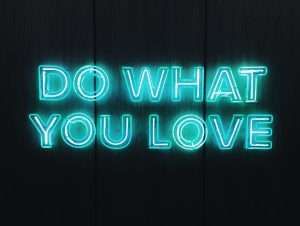
In order to be patient, I need time alone to reflect and center. In order to be creative, I need time with my best friend. In order to be joyful, I need sex. We figured out all these different ways I want to be in the world, the ways I’m called to be in the world, and what the things I need to fill my tank are.
What fills my patience tank is not going to be the same as what fuels my playful tank. Helping people figure out those things that will be rejuvenating for all the different ways they are called to show up in the world, I think is such a great opportunity. As you think about that construct, what are the things that, for you, are the ways you want to be in the world? What are the things that, for you, fill those tanks?
For me, it starts with choice. It’s a choice I make every day and most moments of the day… Sometimes you’re not making the best choices, so you have to acknowledge that, we’re all human, but it is a choice of how I want to be. When I talk about happiness, it’s not a fleeting state of mind. It’s a way of being in the world.
When you study happiness and mindfulness as much as I have, it points to choice, awareness, and doing something about it consistently every day. You don’t go to the gym and do a circuit round on the weights once. No, you do it every day. That’s what it is. When you look at well-being, you make it a lifestyle choice.
The things that fill me are exactly what we’re doing right now, where I can be of service to other people. I have created a life I genuinely love. Am I always upbeat and perky? No, no. I mean, my ethnicity is great. In my culture, we live at the top of our lungs and the end of our nerves.
I say that jokingly, but the thing is, I genuinely believe my book can help people. I believe that it’s accessible and fun. It taps into your creativity. It gives you permission, an allowance to explore, not only your inner self but your inner self by way of creativity. That fills my tank, these choices. It’s taking time to meditate or… I have this Messiah-like quality to walk distances. I’ve walked marathons on every continent for fundraisers. Most days, a short walk for me is three miles. That fills my tank, sleeping fills my tank…
Amen, sister.
Eating food too. I was once in Africa on a trip. It was with other people like myself who designed trips. The person who was hosting us was paying attention to me, watching my behavior, what I ate, and what I wouldn’t eat. At some point, he said to me, “You know what? If I followed your diet, I wouldn’t want to live.”
I looked at him and said, “But it’s not a sacrifice for me.” I eat. I’m a foodie. I love to eat and I can eat a lot, but I like eating fresh fruits and vegetables. That’s what tastes good to me. Not fried foods, not creamy foods. What fills my tank is being healthy, exercising, and eating well. Those things fill my tank. Writing about happiness fills my tank. Taking photos fills my tank. A lot of things fill my tank.
I love that. I heard somebody yesterday who was talking about his journey, and he was saying that as a relatively young person in his mid to late twenties, he was in Mumbai, which is where he had grown up. His goal was to get to the United States and be in the music industry.
A mentor asked him, “What actions are you taking to move you toward that goal?” He replied, “Well, nothing.” I loved it because so often we think, “Well, I want to be happier. I want to be more fit. I want to be more creative. I want to be more… ” Yet we don’t do anything to move us toward that goal.
If you’re reading this and thinking, “Oh yeah, that’s me. I’d like to be happier and more fulfilled and more creative, and I’m not actually doing anything to move me towards that.” Please pre-order your copy of Maria’s book, take a shot at happiness and then let us both know. Let Maria know. Let me know. Join her Facebook group. I will be there too. Let us know how your journey is going.
Maria, is there anything we haven’t touched on yet you were hoping we would have a chance to talk about?
The one thing I would like to say as a parting thought is when it comes to happiness and creating that, as well as the life you want for yourself, is that happiness is a form of resilience.
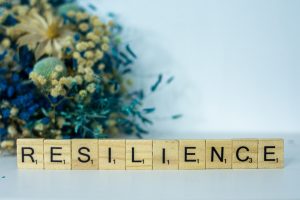
You make these choices to be happy as a state of being as your baseline, and you cultivate that, and it’s another form of resilience. When you are having those times, which will happen, that turn you upside down, you have a path, a way of navigating those times, getting through it faster, and getting onto the other side, being more emotionally intact than you would’ve in a previous life.
This is what I have found in my own life and why I am so wanting to share it with other people because that’s what it is. Happiness is a form of resilience.
I am in love with the word resilience because resilience is about how we bounce back. It’s about how we come back to who we want to be. There’s been so much talk about grit. For me, grit is just grinding through it.
Resilience is about how we can recover back to ourselves. For me, that’s the most juicy, because we all go through hard things and we all have circumstances that get in our way, and then how do we recover? How do we return?
Maria, thank you so much for being with us here today, for sharing your journey, for talking about the book, and for helping me embrace my need for sleep and understand that it’s fine. It’s good. It’s important for all of us. Thank you so much for being with us and sharing your wisdom.
Thank you. It’s been a real privilege being here. Thank you for asking me.
It’s been my joy. I am Janine Hamner Holman, and this has been The Cost of Not Paying Attention. Remember, great leaders make great teams. Until next time.
Important Links
The Sleep Revolution by Arianna Huffington
About Maria Baltazzi
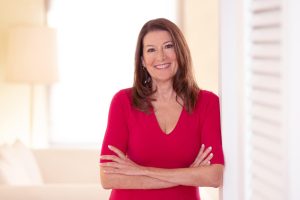 Maria Baltazzi is a Happiness Explorer. Her calling is to help you become happier and live more consciously. Maria’s experience as an Emmy-winning TV producer, well-being teacher, world traveler, and luxury travel designer specializing in transformative adventures has given her a unique lens into conscious living.
Maria Baltazzi is a Happiness Explorer. Her calling is to help you become happier and live more consciously. Maria’s experience as an Emmy-winning TV producer, well-being teacher, world traveler, and luxury travel designer specializing in transformative adventures has given her a unique lens into conscious living.
Maria was inspired to embark on a life-changing journey where she realized eight Happiness Essentials that create a happier, more fulfilling life. Now, Maria helps you discover your path to happiness in a fun, creative way that combines journaling and phone photography.
Maria holds an MFA in film from ArtCenter College of Design and a PhD in Conscious-Centered Living from the University of Sedona. Additional studies include Mindfulness Meditation Teaching Training with Jack Kornfield and Tara Brach, Primordial Sound Meditation Teacher Training from The Chopra Center, Happiness Studies with Tal Ben-Shahar, Positive Neuroplasticity Training with Rick Hanson, Spiritual Psychology with Ron and Mary Hulnick at the University of Santa Monica, Positive Psychology at the University of Pennsylvania, the Science of Happiness at the University of Berkley, and an Inner MBA from MindfulNYU.
In her own happiness journey, Maria finds joy in giving back. She has walked over 7500 miles to raise funds for charity, including marathons on all seven continents, and is still going. Maria’s adventurous life has also involved climbing the 15,000-foot trail to Machu Picchu, leading African safaris, making pilgrimages along the Camino de Santiago, summiting Mt. Kilimanjaro twice, and trekking to Everest Base Camp.
